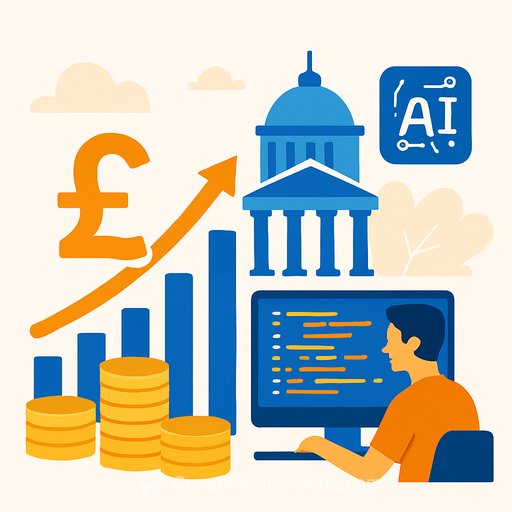Government banks on AI coding to deliver £45bn in savings
The government is deploying AI-generated code across software projects, aiming for up to £45bn in Civil Service savings. A recent trial shows AI coding assistants are saving developers roughly an hour a day - close to a month of working time each year.
The programme, once led by Peter Kyle and now handled by Science and Technology Secretary Liz Kendall, is being pushed as departments hunt for savings ahead of the budget. Technology minister Kanishka Narayan said: "With a £45 billion jackpot at stake, it's not an opportunity we can pass up, as it can help cut backlogs and save money."
What the trial showed
1,000 "tech experts" across 50 departments used approved AI coding assistants, including Google's Gemini and GitHub Copilot. The tools were used on healthcare technology and on "Humphrey," the government's internal AI helper for civil servants.
- Average time saved: ~1 hour per day (about 28 working days per year).
- Primary uses: first drafts of code and code review.
- Only 15% of AI-generated code shipped without edits, indicating disciplined human oversight.
AI can speed up writing code, but planning, verification, editing and debugging still require expertise. The trial data suggests teams are factoring this in rather than treating AI output as final.
Adoption signals from users
- 72% say the tools are good value for money.
- 58% want to keep using them.
- 65% report faster task completion; 56% report better problem-solving.
Mr Narayan added: "For too long, essential public services have been slow to use new technology... Our engineers are hungry to use AI to get that work done more quickly, and know how to use it safely."
Tara Brady, Google Cloud's president in EMEA, said Gemini's Code Assist is having clear impact and highlighted the strategic partnership with the UK government.
Why this matters for your team
- Reduce backlogs: speed up routine coding, reviews and documentation.
- Protect quality: keep humans in the loop for design decisions, security and testing.
- Control spend: focus AI use on high-volume, well-specified tasks to realise savings without rework.
- Standardise use: adopt shared prompts, templates and code review checklists across projects.
Guardrails that make the savings real
- Security and privacy: prevent sensitive data in prompts; enable redaction and audit logs; follow NCSC guidance.
- Quality gates: enforce code review, automated tests, static analysis and vulnerability scans in CI/CD.
- Licensing: scan AI-suggested code for open-source license conflicts before merging.
- Accuracy: require test coverage for AI-authored code; track defects traced to AI suggestions.
- Governance: document where AI is used, who approved it and measured outcomes.
90-day plan to capture benefits
- Weeks 1-2: Pick 2-3 candidate projects (clear specs, repeatable tasks, low data sensitivity). Define metrics: cycle time, review time, bugs, hours saved.
- Weeks 3-6: Pilot Gemini/Copilot with a small team. Set prompt guidelines and a "must-review" rule for AI code. Add license/security scanning to pipelines.
- Weeks 7-10: Compare metrics vs. baseline. Keep a changelog of AI-assisted commits and outcomes. Expand to adjacent teams if targets are met.
- Weeks 11-13: Formalise policy, procurement and training. Publish reusable prompts, code templates and review checklists.
If your team needs structured upskilling, consider this focused pathway: AI Certification for Coding.
Leadership and accountability
The savings policy originated under former technology secretary Peter Kyle and now sits with Liz Kendall, who steps in as science and technology secretary. Delivery will hinge on departments proving measured gains, not just tool adoption.
DSIT's position is clear: the tools can save time, but engineers must review outputs. That balance - speed with oversight - is where the £45bn ambition will be won or lost.
Tools referenced
Your membership also unlocks:






